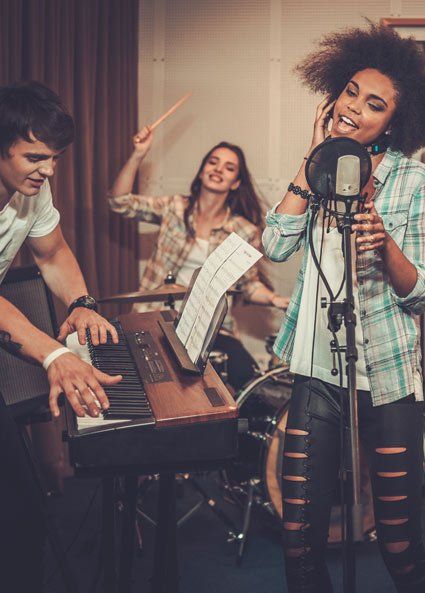Musician Legal Representation NYC - Perdomo Law

Musician Representation Law Firm, Perdomo Law in Manhattan New York, NY

What Legal Representation Do Musicians Need?
Many musicians may believe they only need to worry about legal representation once they receive a large contract with a music publisher. It is common for musicians to play, write, and record music under contracts for a single project. Musicians often work with other artists to create or to entertain. Too often, people can contribute original work for years without thinking about their rights. Many newer artists have a misunderstanding of copyright laws. A Musician Legal Representation Attorney can prevent these costly mistakes.
Types of Musician Contracts
- Song Rights: Musicians can protect their work through a single-song license agreement. The agreement helps to prove the ownership of a specific song. It details who can use it, how, and the pay the musician receives.
- Sampling Rights: Musicians may want to sample the work from other artists in an original piece of their own. Documented permission from the owner of the music prevents complications. Not all sampling requires a contract, but musicians should always consult with an entertainment attorney beforehand.
- Publishing Rights: Publishing rights decide who can publish the music and where. The agreements also detail royalties and other payments made to the musician. Recording agreements are like publishing contracts and are sometimes in the same document.
- Representation Agreements: Musicians that become busy enough to require an agent or hire a publicist will need a representation agreement. A Musician Legal Representation Law Firm will provide a template to personalize for this purpose. The contract lists percentages, fees, contract length, and much more.
- Music Licensing: Licensing decides who can control and profit from published music. The agreement determines the extent of the licensing allowed by the entities listed in the contract. It can include national and international licensing and the types of media and distribution channels the licenses cover.
- Appearance Agreements: Contracts like these can affect the profit the artist makes. Appearance agreements may involve concert appearances and tours. Many include interviews and performances online and on television and merchandise related to the events. Publicists and others that offer these agreements will have premade contracts for musicians to sign. Hiring a musician legal representation attorney to review the papers before signing can prevent any unfortunate mistakes or misunderstandings.
- Musician Endorsements: Artist brand endorsements offer a lucrative opportunity for musicians. The product endorsements and promotions earn residual income that helps to support their creative efforts. Having a lawyer enables the musician to stay protected from any legal concerns the brand may experience. It can also allow them to accept other endorsement deals without any conflict of interest.
- Media Agreements: Musicians may need contracts to work with composers, to produce soundtracks for films and television programs, or to work in a studio. The entertainment industry offers many options for talented musicians. Some people work as employees with the entities, but independent contractors do not have the same guarantee of pay or job security. A consultation with a Musician Legal Representation Lawyer can determine if an offered contract provides adequate protection.
How do Musicians Maintain Creative Rights?
Musicians can only maintain their creative rights through legal representation. Even amicable collaborations can derail when the work begins to draw attention. Anyone that participates in the creation of intellectual property must copyright their work. A signed agreement with coworkers can reduce the risk of future conflict.
Can Musicians Regain Music Rights?
Musicians whose work was recorded and claimed by someone else should do all they can to regain their rights. People do not need official copyrights on intellectual property to file a lawsuit for stolen work. Any dated documentation that proves who created the music could be enough to prove ownership.
The retention of rights can also occur when a contract was not legally signed or recorded. Some entities overreach what the contract allows. Musicians can sue to end the agreement and have all rights returned to them. A lawsuit may even provide compensation to the musician for work sold or used without their permission.

Entertainment and Music Company Bundle Legal Package
- Corporate governance and structure for independent music companies
- Recording, development, and distribution agreements
- Management and Production Contracts
- Songwriting split sheets, affiliations, including ASCAP, BMI, SESAC
Contact Musician Representation Attorney, Francelina M. Perdomo Klukosky for a Case Assessment
Many legal issues will arise throughout the career of a successful musician. Contracts and other documented agreements prevent a loss of payment and keep partnerships working successfully. A musician legal representation law firm protects artists so they can spend their time in a studio or on a stage rather than in a courtroom.
Please contact us for a case assessment.


